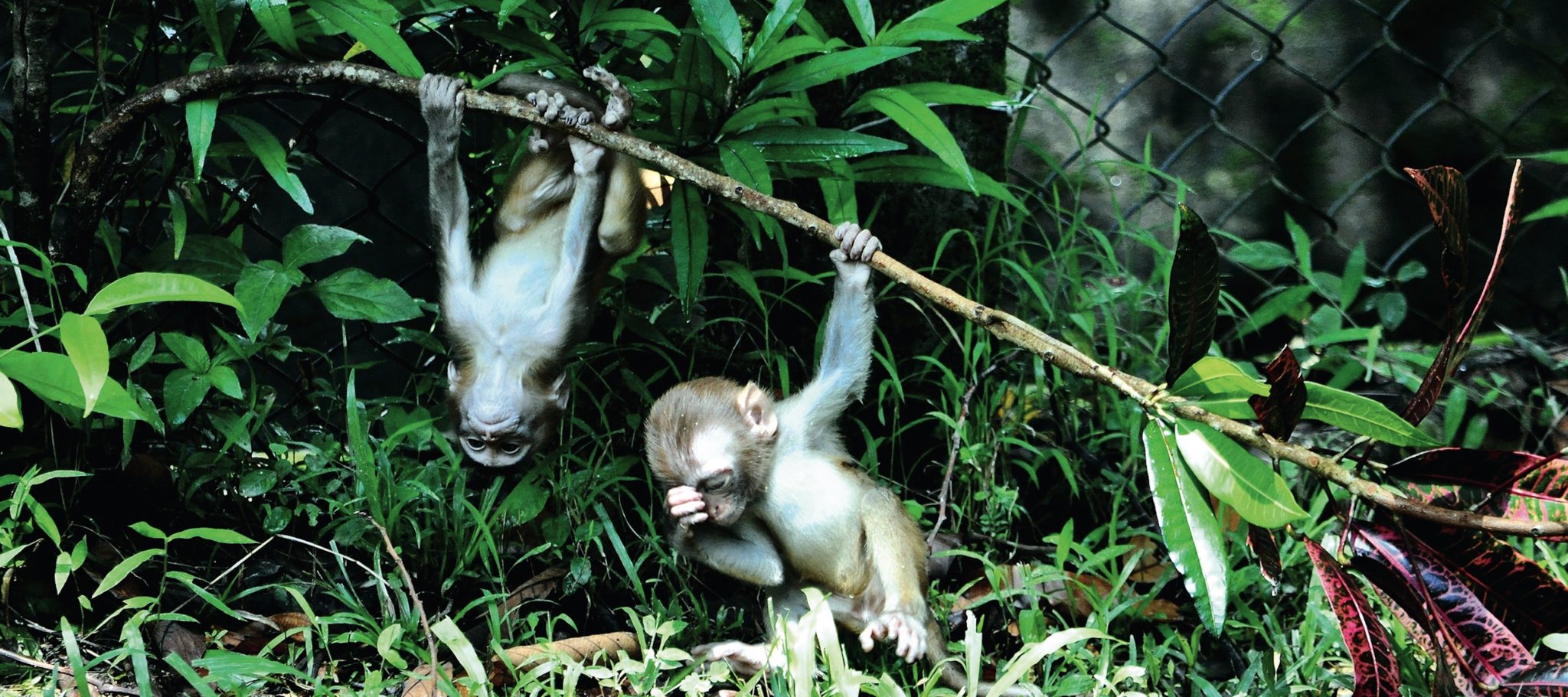Humans have many things in common with monkeys: large brains, hands that can grasp objects, complex social groups. A new study published in the journal Royal Society Open Science confirms another commonality: a taste for alcohol.
Researchers working on Barro Colorado Island, Panama, found that black-handed spider monkeys selected and consumed jobo fruit with alcohol concentrations typically between 1 and 2 percent by volume—slightly less than half the concentration of most light beers.
“For the first time, we have been able to show, without a shadow of a doubt, that wild primates, with no human interference, consume fruit containing ethanol,” said study lead and primatologist Christina Campbell, M.A. ’96, Ph.D. ’00, in a Berkeley News story.
The finding provides support for the “drunken monkey” hypothesis first advanced by Berkeley integrative biologist Robert Dudley, who posits that humans’ love of alcohol was likely inherited from our primate ancestors.
So, is the rainforest canopy filled with tipsy monkeys?
“They’re probably not getting drunk, because their guts are filling before they reach inebriating levels,” Dudley told Berkeley News. “But it is providing some physiological benefit.” Instead of drinking to party, the monkeys use the fruit’s alcohol for energy.Homo sapiens, on the contrary, have access to an abundance of alcohol in pure liquid form, making it easier to overindulge. Dudley, whose father struggled with alcoholism, hopes that discovering the roots of our love affair with booze can help combat the problems that come with it.



















